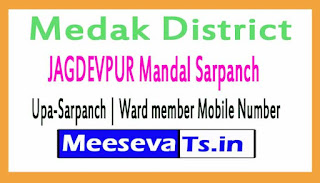If you’re a prime contractor on a private, commercial construction project, your contract with the owner likely includes a provision requiring you to bond off or otherwise dispose of real property liens filed by your subs & suppliers. And if you’re a prime contractor on a bonded public project, the agreement of indemnity between you and your bonding company makes you ultimately responsible for any bond claim the surety might pay.
Either way, you’re exposed to financial loss arising from the lien & bond claims of second-tier and more remote subs & suppliers, even if you faithfully pay your first-tier subs each and every time payment is due.
So what can you do about the risk of double payment in North Carolina?
These two things:
(1) On private construction projects, and within 30 days of obtaining the building permit, file a Notice of Contract with the clerk of court for the county in which the real property to be improved is located, and post a copy of that Notice of Contract adjacent to the building permit on the job site for the duration of the project. That puts the burden on second-tier and lower subs & suppliers to furnish you with a Notice of Subcontract. If they fail to do so, they can’t enforce your lien against the real property via subrogation. Even if you receive a Notice of Subcontract from a remote sub or supplier, you can still prevent that entity from successfully enforcing a subrogation lien by notifying them of each payment you make to the first-tier subcontractor in their contractual chain within five days of each payment.
 (2) On public bonded projects, provide each first-tier subcontractor with a Project Statement. (A template form prepared by the Lien Law Committee of the North Carolina Bar Association’s Construction Law Section can be found here. This form is for educational purposes only, and you should contact an experienced construction lawyer to ensure you’re completing the form appropriately). Remote subs and suppliers must then provide you with a Notice of Public Subcontract to fully protect their rights under your payment bond. If they fail to do so, or do so untimely, their payment bond recovery is limited to work performed and/or materials furnished within 75 days of furnishing the Notice of Public Subcontract, subject to a safe harbor of $20,000 for labor/materials furnished outside the 75-day window. You can read more about double payment protection for prime contractors on public projects in my blog post on the subject here.
(2) On public bonded projects, provide each first-tier subcontractor with a Project Statement. (A template form prepared by the Lien Law Committee of the North Carolina Bar Association’s Construction Law Section can be found here. This form is for educational purposes only, and you should contact an experienced construction lawyer to ensure you’re completing the form appropriately). Remote subs and suppliers must then provide you with a Notice of Public Subcontract to fully protect their rights under your payment bond. If they fail to do so, or do so untimely, their payment bond recovery is limited to work performed and/or materials furnished within 75 days of furnishing the Notice of Public Subcontract, subject to a safe harbor of $20,000 for labor/materials furnished outside the 75-day window. You can read more about double payment protection for prime contractors on public projects in my blog post on the subject here.
As always, get in touch with an experienced construction lawyer for additional information about how you can best protect yourself from double payment liability.




















